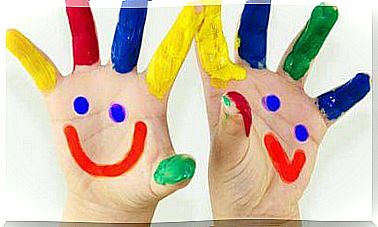Trust Others, What Makes Us Do It?

If we look at how many people have real difficulty in trusting others, we easily realize that this is a gesture that involves a certain risk. It means giving up security, taking the risk of being betrayed by those who can hurt deeply. So what makes us trust others? What leads us to take this little leap of faith?
Individual differences are important in this respect. Some of us trust immediately, others need time and a long series of tests before we trust. There are those who expect the best from others, others to be betrayed. But is it just a question of personality?
What makes us trust others?

Our social nature
We are social beings and as such we need interaction. Establishing meaningful relationships with others is good for your health and is a primary need. Socializing is also rewarding and positively affects our self-esteem and well-being.
When we find ourselves forging a bond to access a more intimate level, trust in the other is an essential ingredient. It would not be possible to maintain any kind of relationship without a minimum degree of trust. Our social nature is, therefore, one of the primary reasons why we trust.
Acquired behaviors
On the other hand, the ability to trust others is largely learned. It is conditioned by our experiences in the first months of life, by the way in which the people of our environment have taught us to relate to others, based on the relationship we have established with them. In other words, it depends on the quality of the first bonds with the attachment figures.
If they have met our needs adequately and consistently, a foundation of trust in the world will have been created. Conversely, if the attention and care has been inconsistent and inconsistent, we will have a hard time trusting others.
Beyond that, all of our subsequent experiences help to confirm or shape this initial trend. Relationships with significant people help strengthen or undermine our trust.
Time causes us to trust others
Time is undoubtedly one of the factors that most influence the trust we place in others. We cannot fully trust a newly known person, since we do not yet know their values and attitudes. Over time we will be able to verify what kind of person he is and how he behaves; based on this, we will increase our degree of confidence.
This also occurs in relationships without an emotional component. Let’s think, for example, of entering a new work environment. The most logical and predictable attitude of colleagues will be a reduced confidence that will increase as we demonstrate our skills and are assigned more responsibilities.
Likewise, we will find that the people we trust the most are the ones we have come a long way with. They have long proved to be balanced and have contributed to the continuity of the relationship.
The reputation
Finally, we always remember that our actions precede us. Reputation can be essential in deciding whether or not to trust someone. When we are faced with an unknown person, their reputation (what we have heard of them) will predispose us to be more open or cautious.
Over time, this information will lose value with respect to the quality of experiences with this person. Trust is obtained through actions and it is the behavior of others that encourages us to consider it worthy of our esteem or not.

Can our tendency to trust others be changed?
To sum up, what drives you to trust others? Trust depends both on who gives it and on who receives it. Undoubtedly, most of us need to know each other, some more, some less, before we can trust. However, there are many people who are no longer able to form important bonds due to a past disappointment.
If this is your case and the situation is making you painful, you may want to consider the help of a specialist. With a good evaluation and an appropriate intervention plan, it will help you find a dynamic of exchange based on trust and intimacy that can make you feel better.








